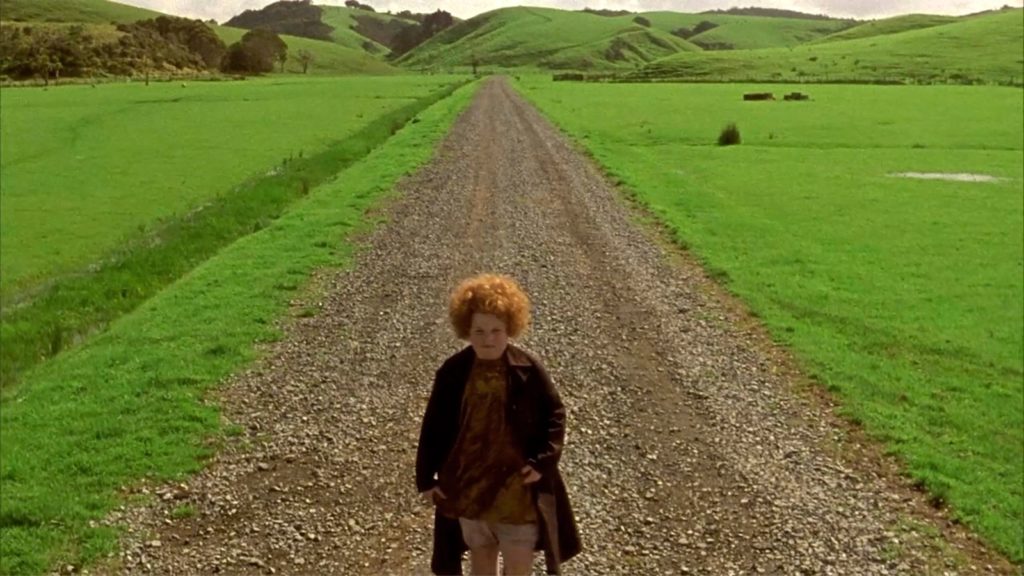An Angel at My Table

RATING: 



(2.5 STARS)
There’s nothing inherently cinematic about the story of Janet Frame’s life. She experiences indescribable tragedy, undergoes infuriatingly inappropriate mental health treatment, and ultimately turns these hardships into inspiration for a literary career that would make her known throughout the world. It is a life fully lived, but even putting it as simply as I just did, it doesn’t feel like material one would turn into a 150-minute motion picture.
That makes Jane Campion’s eye as a director all the more notable. Just like she did with Sweetie, her debut film the previous year, she finds breathtaking visual beauty in New Zealand’s landscapes as well as her characters’ day-to-day lives. Unlike Sweetie, I don’t think An Angel at My Table‘s visuals totally overcome its narrative deficiencies. That might sound harsh for a story that’s objectively powerful, but Sweetie was designed to keep the viewer on edge. An Angel at My Table just beats you into the ground, and I admire it for that, but it’s not totally my jam.
The film is told in three distinct chapters with (shockingly similar-looking) actresses playing Frame across them. We’re introduced to her as a young girl (played by Alexis Keogh). She’s the second of four children raised by working-class parents in rural New Zealand in the first quarter of the 20th century. She’s very shy and looks up to her much more outgoing older sister, Myrtle (Melina Bernecker). After tragedy strikes the family, they begin to drift apart emotionally, and Janet withdraws into herself even further.
Later, Karen Ferguson plays Janet as she navigates young adulthood. She goes to college and studies to become a teacher. But the tragedies continue to pile up, and she has trouble fitting in wherever she goes. Eventually, she’s admitted to a mental institution where she gets misdiagnosed as schizophrenic and is “treated” hundreds of times with electroshock therapy. She’s even scheduled for a lobotomy, but at this point, she’s taken to writing to keep herself whole (or at least as whole as possible given the circumstances), and a story of hers wins a literary prize, which leads to her release.
As an understandably fragile adult, she’s played by Kerry Fox and given a grant to travel and write abroad. She visits the United Kingdom, France, and Spain as she continues to get published and begins to explore relationships (both friendly and more so). Eventually, her misdiagnosis is confirmed by a psychologist who says she’s simply someone who’s different and likes to spend time alone.
That’s the film, and while I’m not usually one to run through the entire plot of something in a review, it’s hard not to in this film’s case. While Frame isn’t as well known as someone like Elton John or Freddie Mercury (to name a couple subjects of recent biopics), the film is a chronological version of someone’s life. There’s not a tremendous effort on the part of screenwriter Laura Jones to veer off the factual path and into more universal thematic territory. There are relatable bits strewn throughout, but that’s not the film’s primary m.o., and that’s fine. But because of this, An Angel at My Table is rarely surprising and mostly conflict-free.
In addition to Campion’s eye, the film’s greatest asset is its trio of outstanding performances from the actresses playing Frame. It’s truly amazing to see three actresses who look so much alike and tap into the same physical and emotional mannerisms across one film. Kerry Fox has the most to do and is probably the film’s strongest asset – the film is also at its most compelling during Frame’s trip abroad – but the thing I’ll always remember about An Angel at My Table is the regularly terrified and heartbroken look on the face of young Alexis Keogh.
While Sweetie’s reputation is, I believe, that of a promising curiosity, An Angel at My Table set the stage for Campion as a titan of international cinema. I’d be lying if I didn’t say I found the film somewhat disappointing, but it’s also not hard to imagine I’d click with it more on subsequent rewatches. Mustering up the enthusiasm to do so, however, is another story.













